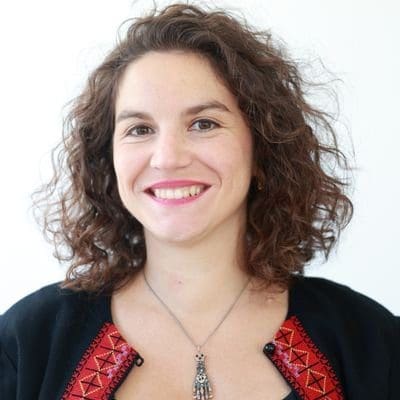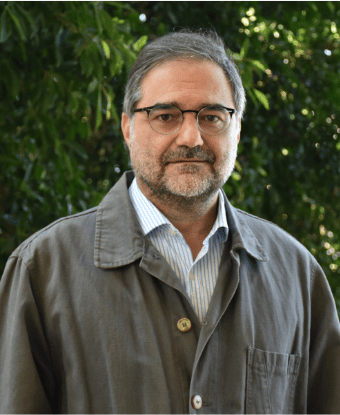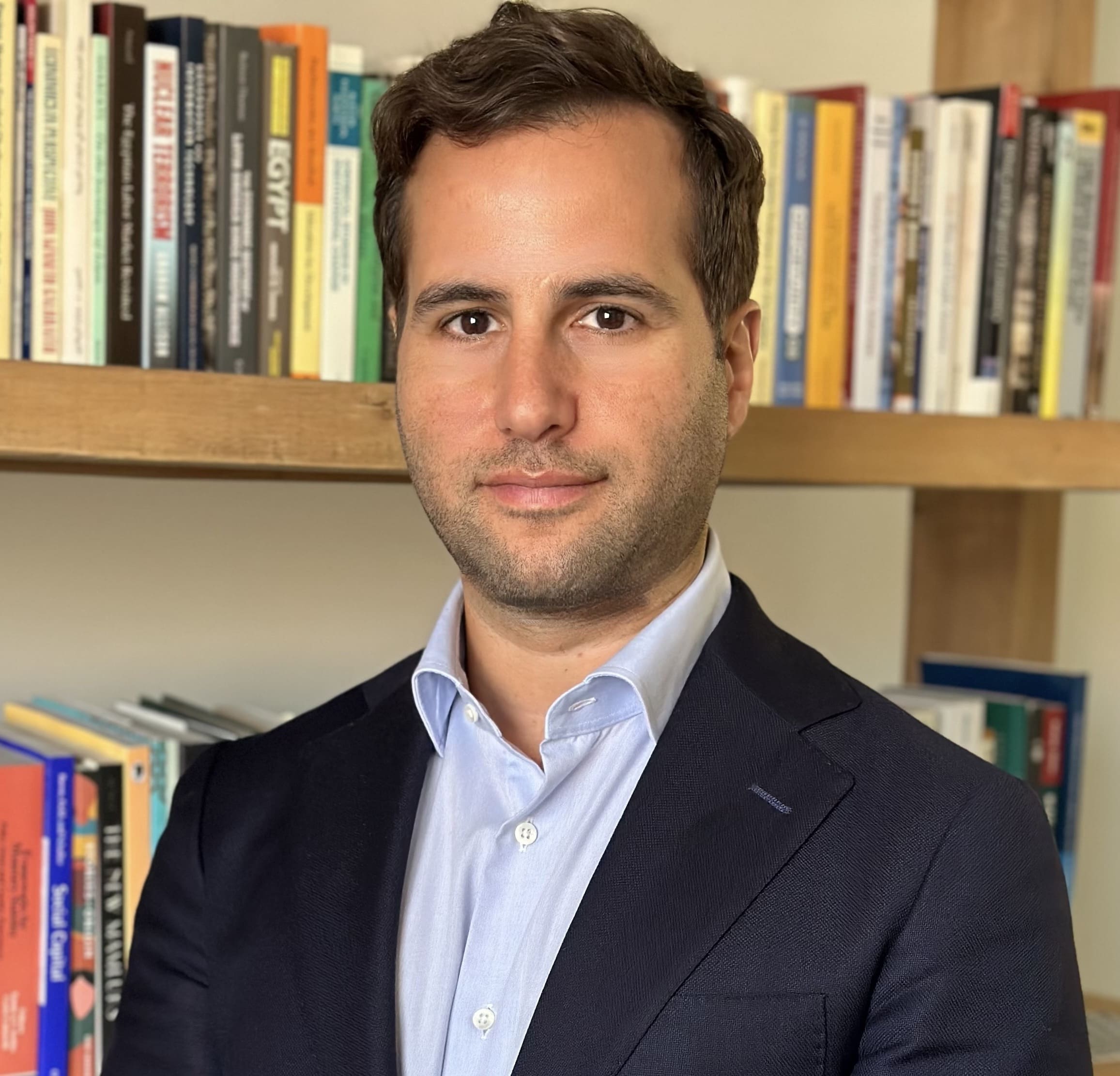Gaza's Unfolding Tragedy:
Palestinian and Regional Perspectives
October 26, 2023
Summary
On October 26th 2023, The Middle East Council on Global Affairs, in collaboration with the Issam Fares Institute for Public Policy and International Affairs at the American University of Beirut, hosted a webinar discussing the current tragedy in Gaza, and its likely effects on Palestine, Israel, the region, and beyond. The session was moderated by ME Council Fellow, Omar Rahman, with guest speakers Ines Abdel Razzak, president of the Palestine Institute for Public Diplomacy; Rami Khouri, distinguished fellow at the Issam Fares Institute; and Joseph Bahout, director of the Issam Fares Institute.
Rahman began the webinar by directing a question to Khouri to interpret the three stage plan set in place by the Israeli Defence Minister and whether it is realistic. Khouri explained that what is happening in Palestine is the expected consequence of the presence of a settler power. The three stages, from Israel’s perspective, are totally logical, as they want to eradicate any militant resistance from Gaza, both civilian and Hamas based. Khouri explained that the three stages are not credible, and the possibility of achieving these goals is unclear. He called for a focus on what is happening on the ground right now, such as negotiations and releasing hostages.
2023 was already listed to be the deadliest year on record for the Palestinians since the Second Intifada. Rahman pointed out that while there is a great focus on Gaza right now, there is not a large focus on the West Bank and Jerusalem. He asked Abdel Razzak if there has been a noticeable change in these areas. Abdel Razzak explained that Palestinians are trying to show that this is a war on Palestine as a whole and calling for an immediate ceasefire. The landscape in the West Bank has worsened since October 7th. Checkpoints are closed, 100 Palestinians have been killed in the West Bank and more than 1000 have been unjustly arrested. Israel has prompted its settlers to increase attacks by allowing settlers to carry arms through a Knesset legislation.
Expanding further on this landscape outside of Gaza, Rahman also pointed out that Lebanon is seen as the most likely front for war outside of Palestine. Rahman posed a question to Bahout regarding the internal dynamics in Lebanon and the possibility of a full-on escalation on the Northern front. Bahout linked the discussion back to Khouri’s point regarding the three part plan, stating that the only viable part of the plan is the first stage, the bombing operation on Gaza, while the other two stages depend on Hezbollah and Iran’s potential for escalation. Lebanon has been deterred from stepping up because it would be very costly, as the country goes through an economic and political crisis. Hezbollah is also not welcome outside of its habitat in the South and has been reluctant to intervene. Bahout posited that Lebanon is in fact not the only natural second front outside of Palestine, as things could also escalate in Syria, Iraq, or Yemen. Today, Israel is trying to engage Hezbollah in order to then be able to involve US fire, however both Biden and Hezbollah are showing a high level of restraint. Hezbollah may be pushed to act if things in Gaza get worse, leading to a ground invasion, and a change in Lebanese public opinion.
Rahman turned to Khouri, asking about the implications of the US decision not to call for a ceasefire. Khouri explained that the Americans have given all out support to Israel. However, the White House is the only space where that support has been unconditional. Media support, while still strong, has waned. Furthermore, unions, universities, and religious institutions have been actively rejecting American support of Israel. There have been big shifts in Western support for Israel, although they are low intensity since they are concentrated within the people rather than the governments.
The issue of the Palestinian Authority (PA) was also brought up. Abdel Razzak explained that recent events in Gaza only further show the irrelevance and complicity of the PA. So far, the only reaction that has been seen from the PA is a loose statement to try and hold Israel accountable. There is a common voice amongst Palestinians, but that voice is decentralized due to the lack of a PLO and Fateh’s unwillingness to give up power. With regards to the diplomatic structure of the region at large, Bahout explained that the Arab position has been driven by self-preservation. Most countries are returning to the Palestinian question after leaving it to Iran for the past years. Following the Cairo Summit, many countries are focusing on the implications of this war on their own nations, such as Jordan and Egypt’s fear of refugees forcing them to take a bolder stance. Furthermore, Saudi Arabia sees itself as lucky not to have normalized earlier. Bahout then explained the ways in which countries in this region have intervened in the past weeks. The gravity of Israeli military action pushed Erdogan to say he regrets mending ties with Israel. Qatar has been involved on the humanitarian side and with hostage negotiations. They are seen as unable to play a role that greatly diverges from the Saudi Arabian position.
During the Q&A, Khouri was asked about what a ground invasion might look like. Khouri explained that any talk about a ground invasion is only speculation since Israel now has a greater respect for Hamas capabilities. Another question was posed regarding international law, to which Abdel Razzak responded that this war has shown how international impunity for Israel is very blatant, and that the credibility of the UN has been lost. The Global South now seeks to voice opinions distant from the Western dominated narrative.
The webinar concluded with some final thoughts from the three panelists. Bahout explained that stressed that the Palestinian question needs to be addressed more seriously than before, such as through Iran-US dialogue; however this can only happen after mass death and destruction. Khouri added that large crises often take time to shift, and changes only happen when leaders at the top are no longer able to sustain what they are doing, listing apartheid South Africa as an example of this. Abdel Razzak concluded the session with the reminder that everyone has the agency in different capacities to make demands for change.
Speakers

Ines Abdel Razek
President, Palestine Institute for Public Diplomacy
Rami Khouri
Distinguished fellow, Issam Fares Institute for Public Policy and International Affairs at the American University of Beirut


